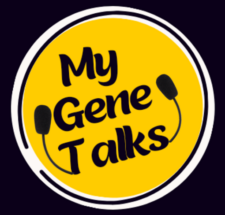Introduction: A Future of Superhumans?
The concept of editing genes to become smarter, stronger, or healthier has fascinated scientists and the public alike for decades. With powerful gene-editing tools like CRISPR now available, one of the biggest questions is: can we truly enhance intelligence or physical strength by altering our DNA?
This blog explores the science behind gene editing, what researchers have discovered so far, the risks involved, and why society may not be ready for “designer humans.”
Basic Understanding of Gene Editing
Gene editing allows scientists to precisely modify DNA at specific locations in the genome. This can be used to correct mutations, silence harmful genes, or even introduce new traits. The most popular tool for this purpose is CRISPR-Cas9, a revolutionary technology that acts like molecular scissors.
While gene editing has immense potential in treating inherited diseases, enhancing traits such as intelligence or strength remains controversial and uncertain.
Intelligence and DNA: Can We Engineer a Smarter Brain?
Scientific studies estimate that 30% to 80% of intelligence is heritable. However, intelligence isn’t governed by a single gene; thousands of genetic variants play minor roles. Genes like BDNF, CHRM2, and COMT are associated with cognition, but modifying them may have unintended consequences on mental health and mood.
Ultimately, intelligence is shaped by a complex mix of genes, environment, education, emotional well-being, and nutrition. Editing DNA might slightly nudge cognitive traits, but it won’t produce instant geniuses.
Physical Strength and Muscle Genes: A Stronger Possibility?
Unlike intelligence, certain physical traits—like muscle development—are more directly influenced by specific genes. For example:
- ACTN3: Found in elite sprinters; affects fast-twitch muscle fibers.
- MSTN: Controls muscle growth; mutations can significantly increase muscle mass.
Animal studies show dramatic strength increases by disabling MSTN. However, what works in mice or dogs may not be safe for humans, with potential side effects on metabolism or heart function.
What’s Been Done So Far?
In 2018, Chinese scientist He Jiankui created the first gene-edited babies, claiming to make them HIV-resistant by editing the CCR5 gene. The global scientific community condemned the experiment for ethical violations and unforeseen consequences. Later studies even linked CCR5 to cognitive function, raising further concerns.
The Risks of Editing Genes for Enhancement
- Complexity: Most traits are influenced by many genes that interact with each other.
- Unintended consequences: Editing one gene may disrupt others.
- Germline edits are permanent: Changes pass to future generations.
- Social inequality: Only the wealthy may afford enhancements, creating a genetic class divide.
Because of these concerns, many countries ban or heavily regulate enhancement-based gene editing.
The Ethics of “Designer Humans”
Should we enhance humans if we can? Some say yes—humanity has always pursued improvement. Others warn it could lead to a society of engineered sameness, discrimination, and loss of individuality.
“Science is not ready. The laws are not in place. And the long-term impacts are unknown.”
What the Future Might Hold
Newer technologies like base editing and prime editing promise more precise changes. These advances could soon lead to safe therapies for conditions like sickle cell disease and cystic fibrosis, without crossing into enhancement.
AI may also help decode complex gene interactions. But we are still far from mapping the full recipe for intelligence, strength, or creativity.
Should We Edit Our Genes for Intelligence or Strength?
The short answer: Not yet.
While tools like CRISPR exist, the science is too immature, the risks too great, and the ethics too unclear to justify enhancement-based editing. For now, supporting ethical research, improving public health, and protecting genetic privacy are smarter investments.
References
- Savulescu, J., & Bostrom, N. (2009). Human Enhancement. Oxford University Press.
- Rae, J. M., & Fidler, S. J. (2022). “CRISPR/Cas9 Genome Editing: Promise, Progress, and Challenges.” Nature Reviews Genetics, 23(6), 389–404.
- Plomin, R., & von Stumm, S. (2018). “The New Genetics of Intelligence.” Nature Reviews Genetics, 19(3), 148–159.
- Hsu, P. D., Lander, E. S., & Zhang, F. (2014). “Development and Applications of CRISPR-Cas9 for Genome Engineering.” Cell, 157(6), 1262–1278.
- Koepsell, D. (2017). “The Ethics of Gene Editing: CRISPR-Cas9 and the Moral Limits of Technoscience.” Science and Engineering Ethics, 23(3), 723–735.
- National Human Genome Research Institute (NHGRI).
- Doudna, J. A., & Charpentier, E. (2014). “The new frontier of genome engineering with CRISPR-Cas9.” Science, 346(6213), 1258096.
- Savulescu, J. (2006). “Genetic Interventions and the Ethics of Enhancement of Human Beings.” In The Oxford Handbook of Bioethics, Oxford University Press.
- Gaskell, G., et al. (2017). “Public Views on Gene Editing and Its Regulation.” Nature Biotechnology, 35, 1020–1021.
- Sandberg, A., & Savulescu, J. (2015). “The Cognitive Enhancement Debate: Lessons from Bioethics.” Cambridge Quarterly of Healthcare Ethics, 24(3), 353–364.


